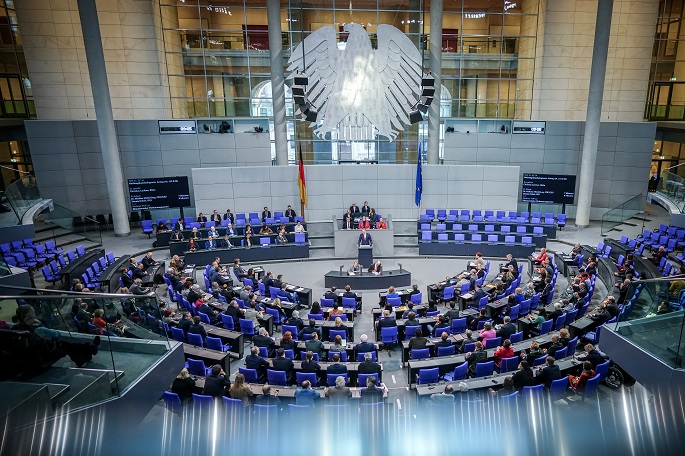Parliamentary experts spar over solutions to Berlin budget fiasco
Published : 05 Dec 2023, 22:18
Experts appointed by Germany's parliament presented differing opinions on Tuesday on how the government should deal with looming gaps in this year's budget.
During a hearing of the Bundestag's Budget Committee, a key point of contention was a plan to suspend a constitutional cap on borrowing in order to create a supplementary 2023 budget.
Chancellor Olaf Scholz's three-party coalition has been wrestling to find a way out of the budget crisis that erupted last month when its spending plans were torpedoed by a top court ruling.
Scholz wants to lift Germany's constitutional curb on deficit spending - what is referred to as the "debt brake" - to resolve the crisis.
This concerns the question of when loans are counted towards the debt brake: When they are authorized or when they are actually paid out?
The Finance Ministry takes loans into account in the year they are authorized. But the Federal Court of Auditors considers this to be unconstitutional, as in this instance it would conceal deficits totalling several billion euros.
But several of the legal experts at Tuesday's hearing argued that the general accounting rule was not affected by the Constitutional Court judgement, as it only referred to special assets with emergency loans.
If the rule is suspended, then the government can retroactively authorize €45 billion ($48.7 billion) of deficit spending this year whose legality was rejected by the Constitutional Court ruling.
The court had struck down the reallocation of unused money borrowed during the coronavirus pandemic for climate projects and subsidies for energy price caps.
According to their written statements ahead of the hearing, the majority of the experts consider the government's plan to clean up the mess to be reasonable.
They write that Germany was in an emergency situation at the beginning of the year due to the energy crisis precipitated by Russia's invasion of Ukraine.
Under the constitution, the debt brake can be set aside in cases of a national emergency or natural disaster.


